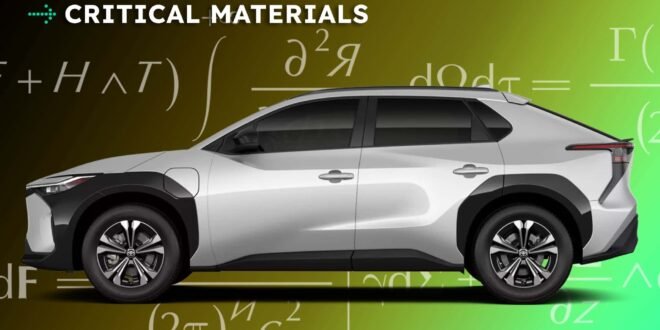EVs Prove to Be Far More Environmentally Friendly Than Expected
Electric vehicles (EVs) have long been touted as a greener alternative to traditional gasoline-powered cars. However, a recent study from the International Council on Clean Transportation (ICCT) has revealed that their environmental benefits are even greater than previously thought. The research shows that EVs produce up to 73% fewer emissions over their entire lifespan compared to gas-powered vehicles. This figure includes not only the manufacturing process but also the energy used to charge the vehicle throughout its lifetime.
The study took into account the entire lifecycle of an EV, from the production of the battery and other components to the recycling of materials at the end of the car’s life. While it is true that EVs have higher emissions during the initial production phase—around 40% more than gas cars—the long-term benefits become significant once the vehicle is in use. After driving approximately 10,500 miles, the reduced tailpipe emissions of an EV surpass the additional emissions from production, making them far more sustainable.
In addition, the study considered the source of electricity used to charge the EV. If the power comes from renewable sources, the overall emissions savings can increase to as much as 78%. This highlights the importance of transitioning to cleaner energy sources to maximize the environmental benefits of EVs.
Hybrid vehicles also showed some positive results, though not as impactful as full EVs. Plug-in hybrids produced about 30% fewer emissions than traditional gas cars, while mild hybrids saw a reduction of around 20%. Natural-gas powered vehicles were found to be 13% cleaner than their gasoline counterparts.
This data reinforces the idea that, despite the higher initial carbon footprint, EVs are a more sustainable choice in the long run. As the global push for cleaner transportation continues, these findings may encourage more consumers and policymakers to support the transition to electric mobility.
Tesla Investors Demand Action on Shareholder Meeting
Tesla investors have grown increasingly frustrated with the company’s delay in setting a date for its annual shareholder meeting. A group of nearly 30 major shareholders has sent a letter to the board, urging them to hold the meeting as soon as possible. The group, which includes U.S. state treasurers, pension funds, and governance experts, cited legal obligations and concerns about corporate governance.
Under the Texas Business Organizations Code, publicly traded companies based in Texas must hold an annual shareholder meeting at least once every 13 months. Tesla’s last meeting was held on June 13, 2024, meaning the company is now just three days away from falling out of compliance. If the board does not act, shareholders could petition the court to force the meeting to take place.
The delay has raised concerns about leadership and management at Tesla, especially given the ongoing scrutiny of CEO Elon Musk’s political activities and the company’s declining sales and stock performance. Musk has faced criticism for his focus on politics rather than running the business, and his feud with former President Donald Trump has further complicated the situation.
Despite these challenges, many investors still believe in Tesla’s potential. However, the uncertainty surrounding the shareholder meeting has added to the growing frustration among stakeholders. In response to the pressure, Tesla recently announced that the annual meeting will be held on November 6, according to a filing with the Securities and Exchange Commission.
Ford Launches Aggressive EV Sales Campaign
As the federal EV tax credit deadline approaches, Ford has launched a major promotional campaign to boost sales of its electric vehicles. The initiative, titled “Zero, Zero, Zero,” offers buyers zero down payment, zero interest on loans, and no payments for at least 90 days after delivery. Additionally, Ford is offering free EV chargers and installation for customers who purchase a vehicle before the tax credit expires.
The campaign aims to make EVs more accessible to American families facing financial pressures. With the average transaction price of new vehicles rising and many buyers struggling with high monthly auto loan payments, Ford is hoping to attract customers by reducing the upfront costs associated with purchasing an electric car.
However, the end of the EV tax credit poses a challenge for Ford. Starting in September, qualifying EVs will become $7,500 more expensive for many buyers, which could significantly impact sales. Ford’s EV sales have already declined this year, with a 31% drop in the second quarter and a 12% decrease in total sales for 2025.
For now, the best time to buy an EV appears to be before the tax credit ends. Consumers looking to take advantage of the incentives should act quickly to secure the best deals.
The Future of EVs in the U.S. Is Uncertain
The American EV market is facing a number of challenges. Federal subsidies and tax credits for EVs are disappearing, and there is little support for expanding the charging infrastructure. Without government backing, automakers are struggling to maintain momentum in the transition to electric mobility.
This uncertainty has led to questions about whether American automakers are truly committed to winning the EV race or if they are simply reacting to changing conditions without a clear strategy. Some industry observers suggest that companies are experimenting with different approaches, hoping to find what works in an unpredictable market.
As tariffs and policy changes continue to shift, the future of the EV industry in the U.S. remains uncertain. Automakers must adapt quickly to stay competitive, but without consistent support from policymakers, the path forward is unclear.
 Info Malang Raya Its All About World News
Info Malang Raya Its All About World News



